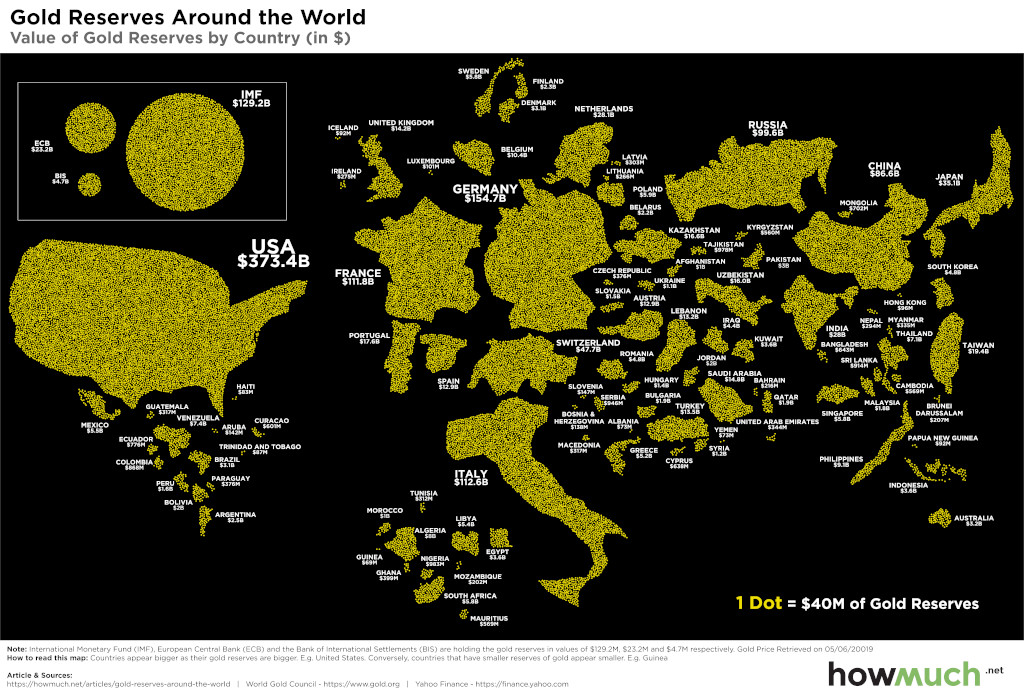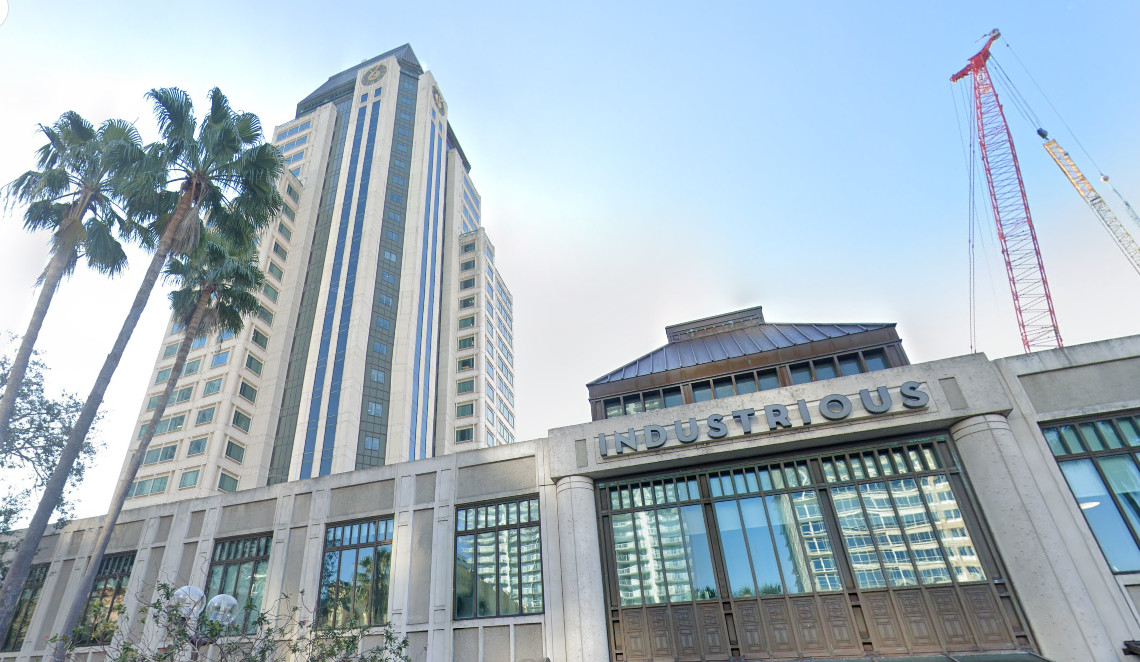CARACAS, Venezuela (ViaNews) – On the 18th of August, United States President, Donald Trump, threatened to impose sanctions against several members of President Nicolás Maduro’s office. In 2016, his predecessor, President Barack Obama, had issued an executive order in which Venezuela “constitutes an unusual and extraordinary threat to the National Security and Foreign Policy of the United States,” and is an “unusual danger for democracy in the continent”.
When threatened by the US and the European Commission, Venezuela received support from Russia, China, Bolivia, Ecuador, Uruguay, Iran, Cuba, Nicaragua, CARICOM (20 members Caribbean Community) and other countries, especially from the southern hemisphere.
Venezuela’s Story
Since the beginning of the 20th century, Venezuela has been the major provider of crude oil to the US. Oil industry.
In February 1989, Venezuelan President, Carlos Andrés Pérez, imposed new IMF Neoliberal policies to a population already plagued by famine. This started a spontaneous popular riot near Caracas. When people looted food stores and were seen on TV throughout the country, the pillage spread. Pérez ordered the military to suppress the looting, and hundreds, maybe thousands were killed and mass buried.
On the 4th of February 1992, there was an aborted military coup against, then President, Carlos Andrés Pérez. The leader of the military revolt was Lieutenant Colonel Hugo Chávez, who, after surrendering in Caracas, was urged by authorities to appear in national television and radio broadcasting, asking his men in other cities to surrender. Live on camera, he urged them to lay down arms, because “the Revolution had been defeated <...> for the time being.”
Once in prison, he planned to continue his Bolivarian Revolution, named after Simon Bolivar, the Venezuelan who liberated Bolivia, Ecuador, Colombia and Venezuela from Spain in the 19th century, but he changed the strategy and chose the electoral democratic way.
Helped by the popularity of his first coup and his now famous sentence “for the time being” he started his campaign, based on the unfairness of country’s wealth distribution and general corruption of ruling classes.
Even media supported Chávez campaign slightly, as he received 57% of the votes in December 1998, becoming President, with 17% more votes than his nearest opponent Henrique Salas Röme. It was the first time in Venezuelan history, and second in Latin America that a non-establishment candidate had won a Presidential Election.
Some media outlets and many powerful financial groups thought they could become part of the new government to keep things unchanged. But Chávez did not compromise and in 2002 the short honeymoon ended.
Innovative Government
In 1999, an Asamblea Nacional Constituyente (ANC) (National Constituent Assembly) was proposed and its members were elected. This assembly had to write a new Constitution for Venezuela. The new fundamental law recognized the indigenous people as owners of their land, changed the structure of the state, and was very forward in regards to human rights and ecological policies.
The concept of Recall Referendum (Referendo Revocatorio) was introduced and the essential character of the state was changed from a representative democracy to a participative democracy. The property of the underground mines (gold, aluminium, nickel, iron ore, oil, gas, diamonds, etc.) could never be sold or transferred and the absolute control should always remain in the State’s hands.
Since then, Chávez and his PSUV (Socialist United Venezuelan Party) have been under fire from inside and outside the country.
The changing face of the opposition
The Oppositionists have changed many times their visible face and name, but behind their façade, several interests remain represented.
- US private oil industry (Exxon and others) and the top and middle executives of PDVSA (Petroleos de Venezuela SA, State owned oil conglomerate)
- Financial institutions, both local and international
- Media, Radio, TV, and newspapers, local and international
- US manufacturing companies (Drugs, automotive, food, weapons).
Local television and newspapers and retired high ranking military, as well as FEDECAMARAS (Chamber of commerce), were the first public faces, behind which the upper and middle classes European descendants, made huge rallies or “marchas”, called by radio and television, to protest against the “Bolivarian Revolution danger”.
A 36 hours coup d’état
In April 11th, 2002, the oppositionists, aroused by their leaders, newspapers, radio, and TV, rallied in protest against Miraflores Presidential Palace, trespassing the permitted demonstration zone.
The Chavistas (Chavez followers) had converged to the Miraflores Palace to protect their President.
The two demonstrations never clashed. The National Guard stopped the Oppositionists from arriving at the Palace, but there were Police Forces from the oppositionist boroughs shooting against the civilians protecting the government house. There were also snipers shooting against both demonstrations.
Television channels transmitted a recording in which a big group of high ranking military asked the president to resign, “because he had ordered his guards to shoot against the Venezuelan people”.
A rather large group of the military, until then in command, kidnapped Chávez, and the next day, a new provisional government was established by Pedro Carmona. The new government was immediately recognized by Spain and the USA.
Many Chavez’s government officials were jailed. The state radio and television stations were seized and shut down. The snipers were set free by Provisional Government security personnel.
Slowly at first but with increasing speed, bewildered and angry people from all over the principal cities rallied to military installations and to Miraflores Presidential Palace, requesting Chávez return, shouting – “Queremos a Chávez! Queremos a Chávez!” (We want Chávez!).
The “provisional government” rushed out of the palace through the back doors, while private TV stations said nothing, they just showed children cartoons.
There was a short and intense struggle between the generals, but no arms were fired, and Chávez was finally set free and returned to Miraflores, on the first hours of April 13th, where his partisans were waiting.
Later it was known that journalist Otto Neustadt, then CNN correspondent in Caracas, recognized that he had recorded the tape the day before the shootings took place, in complicity with the military in the video scene. CNN fired his correspondent in Caracas.
Confirming that the Bolivarian Revolution was a “humanist and love funded revolution”, after a few months, all the coup’s participating military and civilians were set free.
Democracy
In 18 years, 21 elections have taken place, and the Chavista party (PSUV) won most of them, except two: in 2003 Chávez proposed a Constitutional Reform, that would drive society and state structures towards socialism, and it was not approved by voters.
Nevertheless, Chávez renewed his mandate several times by winning elections, the last one in October 2012 because he was severely ill, the diagnosis was bone cancer.
There were two possible successors, the first was a military Diosdado Cabello which fought with Chávez in the 1982 failed coup. The second was a civilian, Nicolás Maduro, bus driver and worker’s union leader, who acted as Chávez Foreign Relations Minister for seven years. Chávez chose Nicolás Maduro and asked Venezuelans to vote for him.
Chávez died on April 2013 and Maduro was elected president a few months later.
In 2014 new elections were held, for the Legislative National Assembly members, and this was the second election won by the opposition. For the first time in 15 years, the revolution does not have full control of the state.
Fourth Generation War
During all this time since 1999, the government has been under constant attack, from media, and oppositionists.
After the first coup failed, they called for a National Strike and the top executives of the state-owned oil industry (PDVSA) made a lockout, stopping oil production and refining processes for several weeks until workers could rescue the industry.
Oppositionists reunited themselves in an organization called MUD (Spanish for Mesa de la Unidad Democrática) a Coalition of Democratic Groups.
Venezuelan government officials say that, as in the 2002 ‘36 hours Coup D’état’, foreign countries, especially the US, are financing and supporting counterrevolution and fourth generation slow warfare, and that the MUD is their representative in Venezuela. Moreover, oil prices fell from US$150 in 2008 to US$30 per barrel in 2015.
The government accuses the counterrevolution to propitiate economic warfare, which has produced a scarcity of food and drugs and has raised inflation to record levels. Food and drugs are imported by private corporations with dollars they receive from Banco Central (The Central Bank is the monetary authority which prints currency and safe keeps gold reserves and foreign currency) and they pay Bs.10 (Ten Bolívares, local currency) for each Dollar. The Dollar price at the street black market is Bs. 15,000.- per dollar. Yes, the relation is 10 to 15.000. Dealing with, and even quoting, foreign currency is prohibited, but there is a Miami based web page, called DolarToday that sets an artificial value for the dollar, and all merchants apply this value to their prices.
Empresas Polar, one of the biggest food corporations, imports corn flour, processes it and must sell it at the regulated price of near Bs. 800.- per Kg. But in the markets, there is usually no corn flour on the shelves.
Very early in the morning, each day, there are long lines of people who can only buy two packages at the regulated price. They then sell it for maybe Bs. 10.000.- each. They are called “bachaqueros” (“Bachaco” is a word used for “ants”). They do this with toilet paper, shaving razors, deodorant and pretty much everything else. But they handle small amounts, the big amounts are illegally sold and exported to Brazil, Colombia, and neighbouring islands. This also happens within other industries, for example meat, eggs, paper, gasoline, poultry, tires, cement and drugs are also illegally exported and thus the local scarcity and high inflation continue to rise.
In this economic scenario, and without Chávez charisma, the government was losing popularity. Furthermore, Argentina and Brazil, once Venezuelan allies, have changed governments, either through elections or Parliamentary Coup and are now enemies.
Oppositionist called for rallies or “guarimbas” every other day, for three months. Guarimbas, a word of much-discussed origin, is associated with the Spanish word “guarida” which means den or hideout, and that’s how they work. Organizers close the street with whatever object they find, debris, old chairs, old tires on fire or just trash, and then hide away, maybe on their nearby house. Sometimes, if not afraid of the National Guard or Police, they stay, with Venezuelan banners and signs. Sometimes nobody is seen on guard.
But many times, they stay to impede transit by further action, and when drivers try to pass through, they are attacked. Many of the 120-count dead, have been killed trying to bypass the Guarimbas, by the Guarimberos.
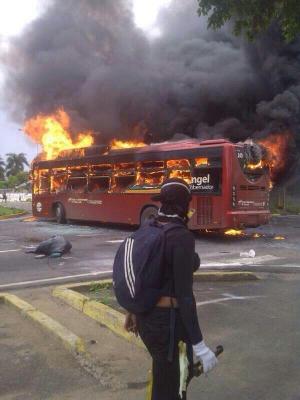
The action to proceed to close the streets is triggered by social media. After 120 days of cities disturbed by guarimbas, now middle-class children use to play “guarimbas”. At home, they use their toys, bicycles, and chairs to prohibit transit to authority: their elders.
The protesters are middle-class students, house wives and executives marching behind a mercenary vanguard of paid youngsters from another socioeconomic background, who is in charge of striking public installations and National Guards with stones, Molotov cocktails home made bazookas and even “shit-bombs” and firearms. Their faces are always covered. After the first few weeks, only a small portion of non-mercenary protesters remained. Most housewives returned home. The mercenaries are also in charge of the guarimbas.
The city of Caracas (and other major cities too) is virtually divided into two parts. The rich boroughs, where protests, rallies, and guarimbas take place, and the rest of the city, where normal life goes on. Many times, when there is a scheduled opposition march, the underground trains close the stations in affected boroughs.
Diplomatic and military offensive
In synchronism with this internal inferno, US Navy Adm. Kurt Tidd, chief of US Southern Command, raised the situation to the US Senate and informed they were in talks with MUD’s leaders and with OAS Secretary General, Luis Almagro to put pressure on Maduro’s government, and oblige him to call for general presidential elections.
MUD members Julio Borges and María Corina Machado tried to speak at the OAS General Assembly and Luis Almagro proposed the application of the Interamerican Democratic Charter, by which countries with anti-democratic governments can be sanctioned. Almagro could never rise necessary votes.
People get tired
Every day a civil war or a foreign invasion seemed closer. People were afraid, whoever could, was buying food, water, and medicines. Many left the country.
The New York Times had published: “The State Department on Thursday ordered family members of American government employees working at the United States Embassy in Caracas to leave the country and gave the employees the option to join them, before a controversial vote to begin rewriting Venezuela’s Constitution. The State Department said it had made the decision, along with an expanded travel warning, “due to social unrest, violent crime and pervasive food and medicine shortages” in Venezuela”.
Venezuelan government officials said actual laws made it very difficult to prosecute intellectual and material authors of unrest and economic distortion and better laws needed a constitutional change.
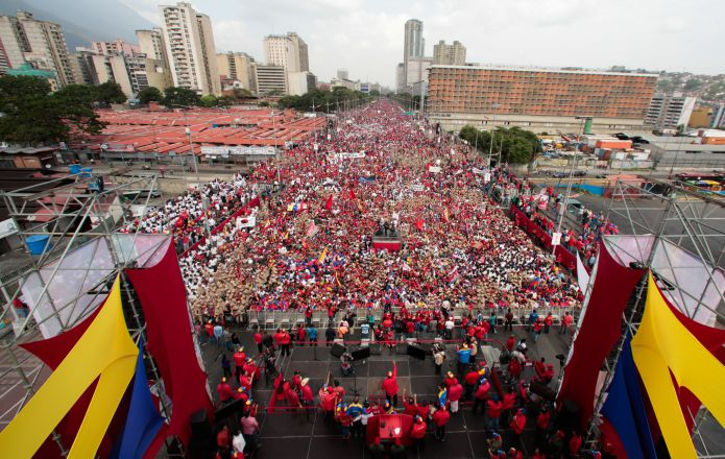
Then, in May the first, (Labour Day) Nicolas Maduro announced that he, together with his ministers, as stated by the Constitution, was calling for an Asamblea Nacional Constituyente (ANC, National Constituent Assembly), which is Plenipotentiary and should be elected by direct universal secret voting. This assembly can change the Constitution or make a new one. The general election was held on Sunday, July the 30th.
The new National Constituent Assembly would have three kinds of members. Members are chosen by a geographical division of the country, members chosen by activity (workers, students, pensioners, industrialists, farmers, communal councils) and members from indigenous groups.
The new Constitution was needed, said President Maduro, to build peace through justice, and to solve economic attacks. Actual impunity for economic and hate crimes need new Constitutional powers which will present within the new laws.
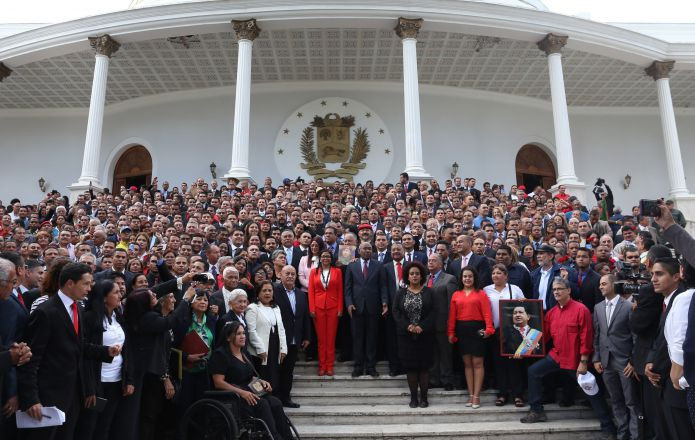
The new constitution would also recognize the communal state, and all the “social missions” created by Chavez and Maduro, which nowadays benefit millions of citizens, and which could be easily abolished by a new neoliberal government, if they were not included in the new constitution.
The oppositionists called their partisans to measure their strength in a plebiscite, scheduled for July 16th. It was an unofficial plebiscite because they did not seek the supervision of the CNE (Consejo Nacional Electoral, the National Electoral Council).
It was covered by the media. A cameraman from VTV (State owned TV broadcasting station), recording with a concealed camera, voted seven times in different parts of the city to demonstrate that the system was not reliable. The MUD said they had cast more than 7 million votes against the ANC. At the end of the day, after counting the votes, they burned all papers.
On July 18th, US President Donald Trump threatened to take “strong and swift economic actions” if President Maduro maintains his plans to make a Plenipotentiary Legislative Power. Maduro commented in some of his usual TV appearing that such a decision “is not in my hands, it is on Venezuelan people’s hands”.
The elections’ day was set for Sunday, July the 30th, lasting from 06:00 in the morning until 6 pm or until there is nobody in the line.
The CNE then installed Emergency Votation Centers, where people who lived or had to vote in the wealthier boroughs could vote. One of them, in Caracas, was installed in the “Poliedro”, a closed stadium. The conflicts had been rising in intensity and frequency, but always concentrated in the boroughs where the Oppositionists live, in small areas of the cities.
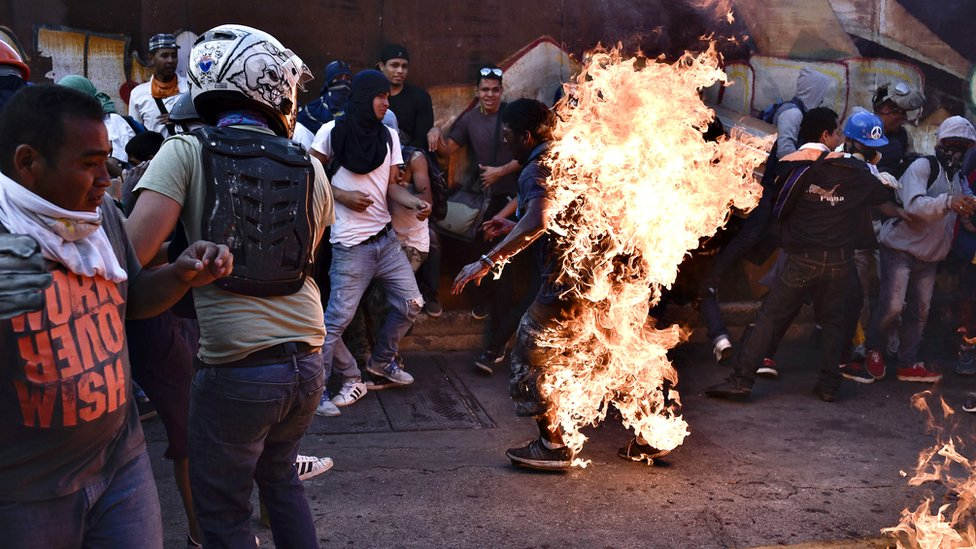
Some unconfirmed sources say that social media was flooded with messages calling for Opposition followers to try to sabotage the voting acts. This meant barricades, or “guarimbas” impeding people from leaving their boroughs, or attacking them on their way to the electoral centers. According to the same sources, most of the guarimberos were mercenaries with covered faces.
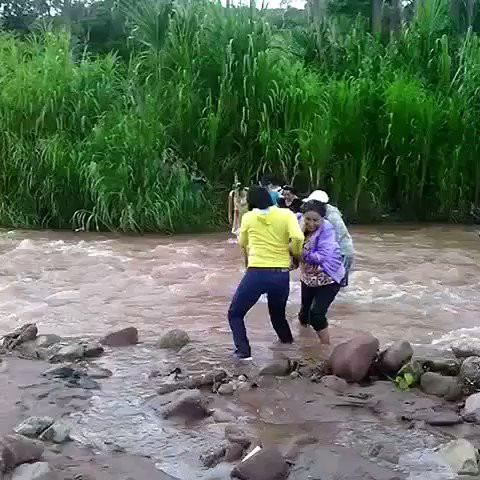
Unconfirmed sources say that elections are held in public or private schools. 15 days before the election day, most of the private schools in the wealthier borrows, where higher and middle classes live, informed they will not cooperate lending their premises.
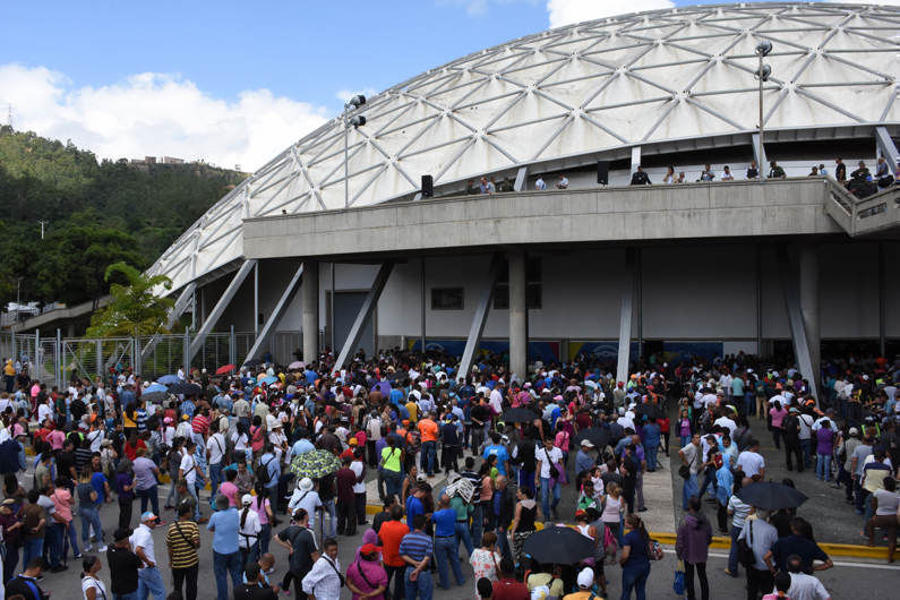
Eight days before and during the elections, as stated by Electoral Law, the Army (and not the National Guard) oversees the order in the voting centers. They are regular soldiers, fully armed. Some voters, afraid of possible Guarimbas on their way to special voting centers, left their houses the night before. Some woke up very early and tried to make it to the voting center.
The elections’ day the Oppositionists produced incidents in 200 voting centers, they destroyed and set fire to several electronic voting machines, killed one military and wounded another. Nine civilians were killed.
In the Occident of Venezuela, strongly influenced and invaded by right-wing Colombian paramilitaries, the guarimbas were stronger, and many small towns inhabitants and peasants could not reach the voting centers because normal roads were closed. Thus, they tried to arrive cross country, climbing mountains and crossing rivers without using the bridges. According to some reports, oppositionists or guarimberos opened fire against them in several locations, injuring some.
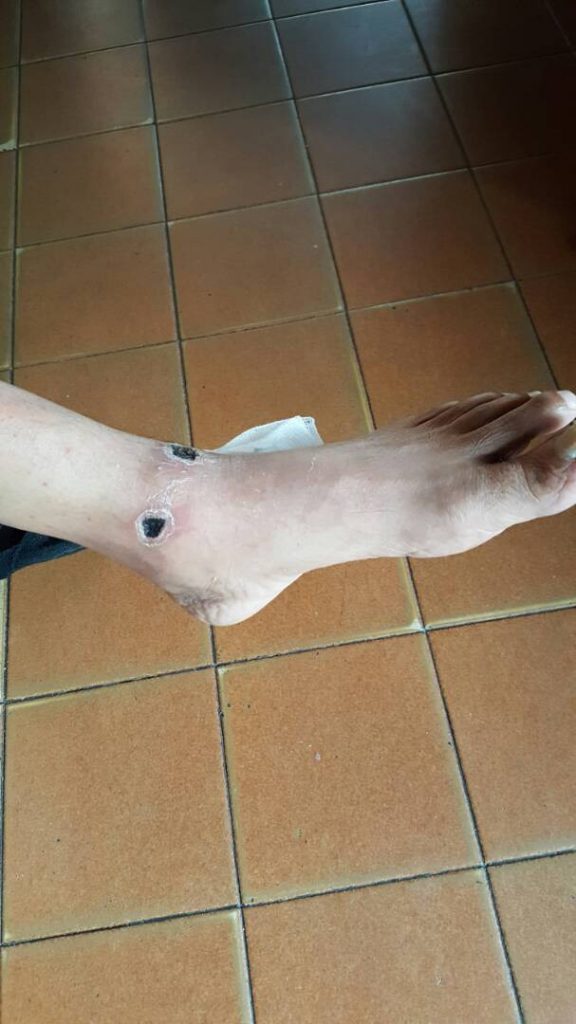
Most of them could arrive at the voting centers. They recorded their effort with their mobile phones and released their clips through social media. Those clips were broadcasted by state TV stations. The success and public exposure attracted more voters which decided to take the back roads and there were hundreds arriving at each center.
When scrutiny ended, the electoral authority informed that Venezuelans had cast over 8 million votes. It means 41.53% of registered voters.
Rioting and guarimbas ended, while the MUD split into at least two parts. Most of them inscribed their candidacies for Governor’s election. Some insist on other means.
Plenipotentiary powers
The new ANC has supreme powers because it is the people’s power. President Maduro had to be ratified by the ANC as President. The constituents must write a new Constitution in 24 months, but meanwhile, they can write needed Constitutional Laws, to immediately change matters like economic warfare and impunity regarding economic and hate crimes.
If people don’t get needed answers to their economic problems, the next governor’s election will be a difficult task for Chavistas. President Maduro promised news for the week starting Monday, August 21.


